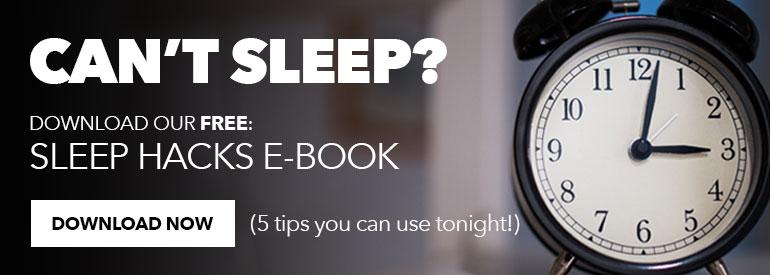 Reading Time: 6 minutes
Reading Time: 6 minutesIf you’ve ever glanced at the fitness and beauty magazines in the check-out line at your local supermarket, you may have noticed a stark similarity in the headlines – Lose 30 Pounds in 30 Days, Get Fit for Fall, and Find Those Toned Abs You’re Looking For. The majority of content reads like a how-to manual with the emphasis on some sort of achievable short-term destination.
This sort of fitness content exists for one sole purpose – to give you the turn-key instructions and necessary steps of how to get “there.”
But no one ever tells you how to stay there. Because “living a healthy life” can seem large and nebulous, we fixate on the short-term goals and true health evades our grasp.
Most of us are all too familiar with the ebb and flow of short-term fitness culture. We join a gym only to quit six months later once the excitement has worn off. We go on a fad diet only to gain the weight back once we’re free of restrictions. We euphorically cross the finish line of a race only to then hang up our running shoes.
Don’t get me wrong – I’m not knocking taking that first step. It takes bravery to attempt a new goal. But it takes fortitude and courage to stay the course. Continuing beyond our initial goal and living a truly healthy life takes the right approach and, most of all, the willingness to face failure.
Here are four tips for achieving and living at your goal, versus just visiting it.
1. Ask the Right Questions
“How do I lose weight?” isn’t the best question to set yourself up for success. A more useful question is “Why did I gain weight?”
“Which exercise burns the most calories?” isn’t the best question. A more useful question that will help you find something you’ll look forward to doing every day is “What way of moving my body brings me joy?”
The common approach in fitness is to seek answers. A more effective strategy is to seek the right questions. Good questions get at the root of the problem you’re attempting to solve, whereas less successful questions offer you a temporary reprieve from what ails you.
2. Use Scientific Measurements
Much of what we see in the fitness world is vague about science, facts, and the actual mechanics of how things work. Thinking all we have to do is burn away calories while doing cardio is an example of such “science.” Yes, at a base level, the laws of thermodynamics are laws, but a strictly calories in-calories out formula does not necessarily correlate to weight loss.
The science behind staying fit and lean is a lot more complex. Tracking calories and getting on the scale daily isn’t the road map to sustained success. In fact, one could contend that these are even psychologically detrimental.
Living at your goal means referencing more useful scientific measurements:
- An oft-overlooked component of wellness is sleep data, which correlates with weight, performance, and mortality. Have you taken a good analytical look at your sleep habits?
- Using scientific blood panels like the Alcat can provide you with a basis to determine which food sensitivities and allergies may be impeding your progress.
- Stress is another important variable – using science like heart rate variability (HRV) and cortisol measurements to understand the role stress may be playing can shed vital light on the narrative of staying well.
- Measuring HDL, LDL, triglycerides, hemoglobin A1C, and glucose can provide you with important pieces to our health puzzle which is why we recommend them in Phase 3 of our self-assessment.
The human body is a complex organism and successfully managing that organism requires the correct scientific basis. As simple as we may want it to be, lasting results require in-depth and reoccurring analysis.
3. Choose a Sustainable Program
From electronic cars to the farm-to-table food movement, sustainability has become a popular concept with good reason. Sustainability means not just the survivability of the planet, but the survivability of your body. Extremes are typically not compatible with long-term sustainability. When you fad diet, you run the risk of wrecking your metabolism in the process. When you fad exercise, you run the risk of injury.
But taking the sustainable path involves first doing the introspective work of establishing what it is that makes you tick. You can learn to like exercise, just like you can learn to like broccoli or apples, but it’s a pretty tall order to force yourself to do things you hate beyond the short term.
“Diets” don’t work because most of us don’t intend to stay on them. We often take the same approach to exercise. We’ll do it for a little while until we get “there,” right? But then what? Part of the reasons Europeans are generally leaner than we are is that they eat sustainable food (organic, local, whole) and move their bodies in sustainable ways (walking and biking). Take the time to consider what is “sustainable” for you.
4. Be Prepared for Failure
Failure can send you into a tailspin or be a springboard to your next goal. According to researcher Angela Duckworth from The University of Pennsylvania, enduring failure is a huge predictor of success – and is related to what she calls “grit.”
When you encounter “failure,” it simply means you now have an opportunity to dig and uncover the data that tells you why you veered off course and use it to your advantage. Failure is synonymous with feedback. Fostering grit means using feedback as a motivator to get it right the next time. And, trust me, I know that’s easier said than done.
Which is why self-regulation is critical according to a study co-authored by Vanderbilt management and sociology professor Bruce Barry that evaluated sustained motivation and long-term success. Self-regulation means not letting your emotions get the best of you and seeing the positive in your setbacks. Said Barry, “Effective self-regulation is associated with physical and psychological well-being, as well as better job performance.”
Essentially, to self-regulate means to navigate stress and negativity by observing our emotions, and to successfully do so involves stepping outside ourselves. Having a daily mindfulness practice such as prayer or meditation can help immensely. According to the Harvard Business Review, meditation fosters success by improving focus, enhancing creativity, and building resilience.
The short story is: failure will prompt an emotional response (and typically not a good one). But once we can step back and see our emotions, we can effectively navigate them. As the Brits used to say, “Keep calm and carry on.”
The Bottom Line on Living a Healthy Life
The metaphor that perhaps best encapsulates our typical approach to goals is climbing the ladder. The idea that somehow if you keep climbing you will get there – the mountain top, the top of the heap, eternal bliss.
But life is a circle, not a staircase.
As athletes and business people alike know, training and goals are reached through cycles of hard and focused work. But successful people are also aware that there are larger cycles at play – an entire career, the aging process, and ultimately retirement.
You, too, are getting older and inevitably your body will get slower and weaker. Someday, you too will “retire,” whether it be from your sport, your work, or simply a fitness regimen. But that retirement simply marks the start of your next venture. That activity or goal was not the full picture — it was just one milestone on the bigger journey.
Living at your goal means making the most of each life cycle and being willing to reinvent yourself at each stage. Because it’s not about summer abs or getting fit in the next thirty days. It’s about health and happiness for your whole life.













